For people like me, who love to be in the water, getting into a pool with my newborn was a top priority. What parent isn’t excited about the idea of getting into a swimming pool and introducing her baby to it for the first time? But is it safe? Can chlorine harm a baby? Let’s chat more about chlorine and babies!
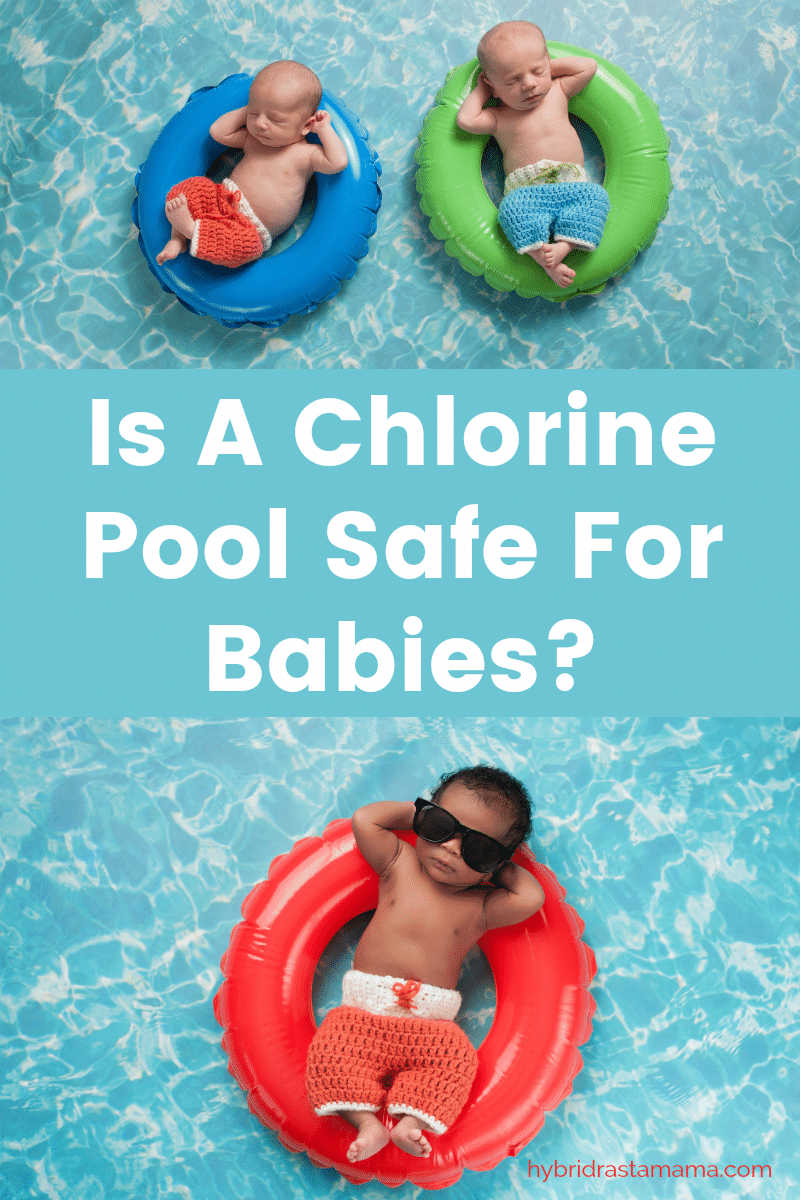
When is it safe to take a newborn in a chlorine pool?
Unless a chlorine allergy exists, there is no reason why a newborn baby cannot go into a chlorinated swimming pool. Most parents do wait until their newborn is at least 2 weeks old however.
Guidelines For Introducing A Baby To A Chlorine Pool
Although chlorine is considered “safe” for newborns, it still has some risks. Following a few simple guidelines will help ease your newborn baby into this environment.
Do not take your newborn or baby to an indoor pool. The chlorine fumes actually build up in the enclosed space which can cause respiratory distress. Stick with outdoor pools. Just don’t forget the sun protection!
Make sure the water does not get into your baby’s eyes. A newborn’s membranes are very sensitive and getting chlorine pool water in newborn eyes will very likely cause irritation and discomfort.
Chlorine is a chemical and as such will absorb through skin bringing with it an array of toxins. This might irritate sensitive newborn skin and cause a rash, including eczema. To protect that baby skin, slather it in coconut oil before getting into a chlorine pool. In addition, wash your baby’s skin with clean water once you are done swimming.
Keep the first few visits to the pool short and sweet. This will allow your newborn to get a feel for the water and for you to watch for any signs of chlorine sensitivity.
Public Pools and Chlorine Sensitivities In Babies
Public pools, especially indoor ones, like those found in hotels or community centers and gyms, are often over-chlorinated. Ever notice how your eyes get a little big redder, or burn a little more if you open them underwater at an indoor pool? This is due to chlorine, which everyone, children or adults, may tolerate differently.
With a newborn, there is really no way to know how sensitive he or she will be to chlorine, so keep the first few visits in a swimming pool short, in order to avoid unpleasant reactions. With each successive trip to the pool, stay in a little longer with your baby and watch for signs of intolerance. Common signs that your baby may not tolerate chlorine are skin redness/rashes, rubbing eyes or crying.
Saltwater Pools and Babies
There is a mistaken belief that saltwater pools do not contain chlorine. This is not true. While it is true that chlorine in its granular form is not added to salt water pools, chlorine is generated by way of a chlorine generator (salt cell). In other words, the salt cell, which is contained in the filtration equipment, changes salt to chlorine by a form of electrolysis.
This naturally generated chlorine goes right to work in the filtering system, and is partially converted back to salt before it returns to the pool. The relatively low doses of chlorine that make it back to the pool then waits to come into contact with an organic material to oxidize, at which time it turns back into salt. Many people with chlorine sensitivities, even allergies, can tolerate the lower levels of chlorine found in saltwater system pools, which is one reason why they have grown in popularity in the last few decades.
Risk of RSV From Swimming Pools
For some young children, including infants, there are studies that show a slightly higher risk of respiratory illnesses like bronchiolitis or pneumonia due to exposure to respiratory syncytial virus (RSV), which may be associated with swimming pools. Typically, RSV is a mild illness for both children and infants, but factors such as premature delivery and/or low birth weight, or prior chronic heart or lung disease, may increase severity.
It is highly disputed whether taking babies into swimming pools carries an inherent risk, mainly because it is difficult to determine the exact cause of respiratory infections in children. Most babies commonly come into contact with other means of contracting respiratory infections, such as family members, daycare centers, other babies, etc. Because RSV is highly contagious and spread through airborne means such as sneezing, coughing, there is no way of knowing just how a baby contracts it.
Important Tip When Bringing Your Baby To The Pool
Due to an infant’s high surface area-to body weight ratio, water temperature should be in the mid-eighties. Babies get both cold and over-heated more easily than bigger kids and adults, so never take babies into hot tubs or overly warm bathwater. Also do not take a baby into a pool below 78 degrees.
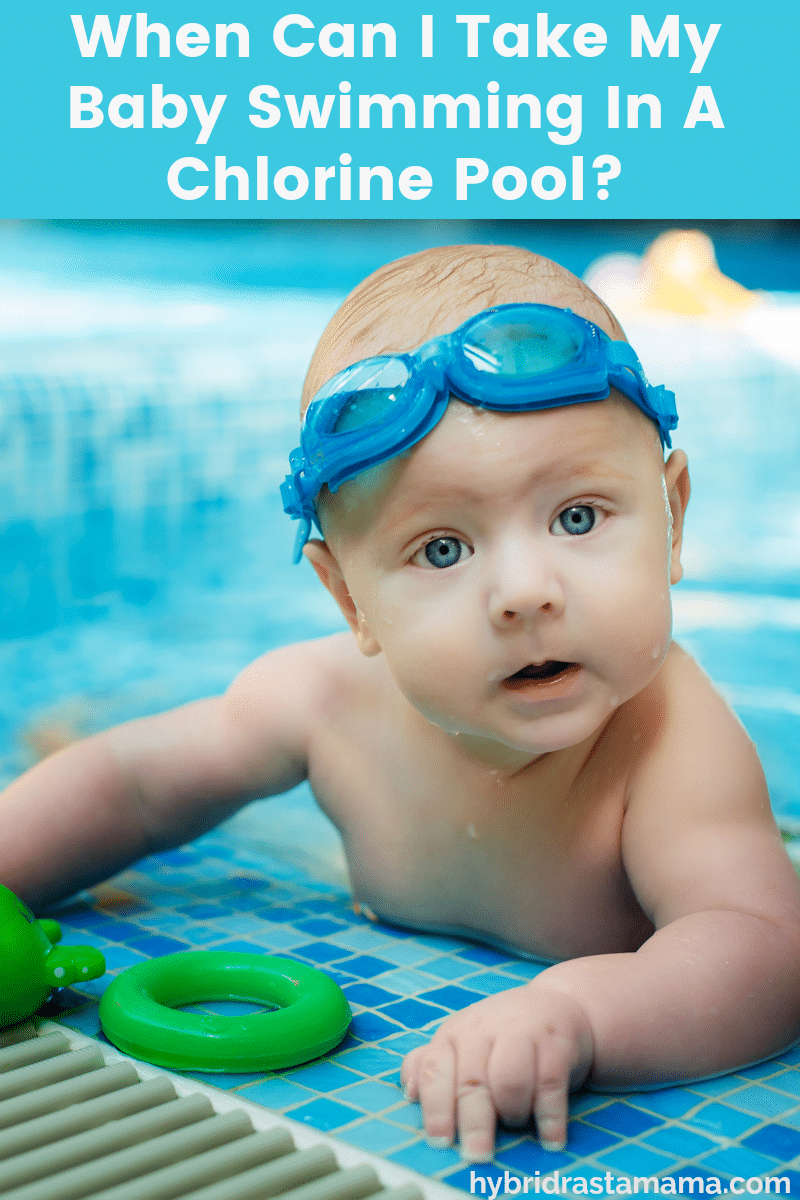

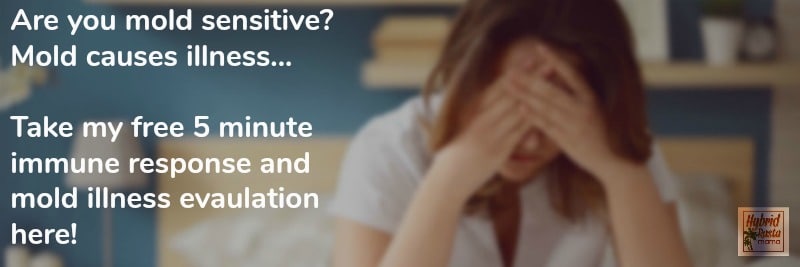

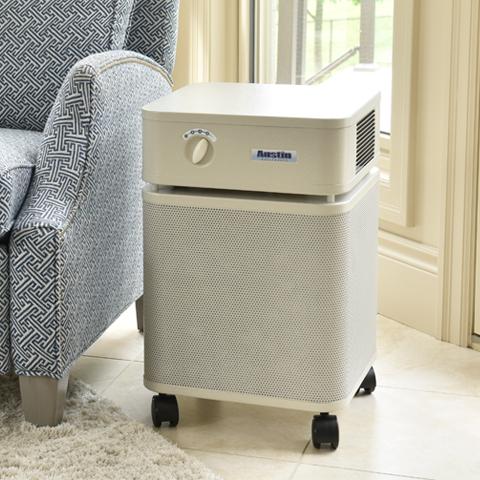



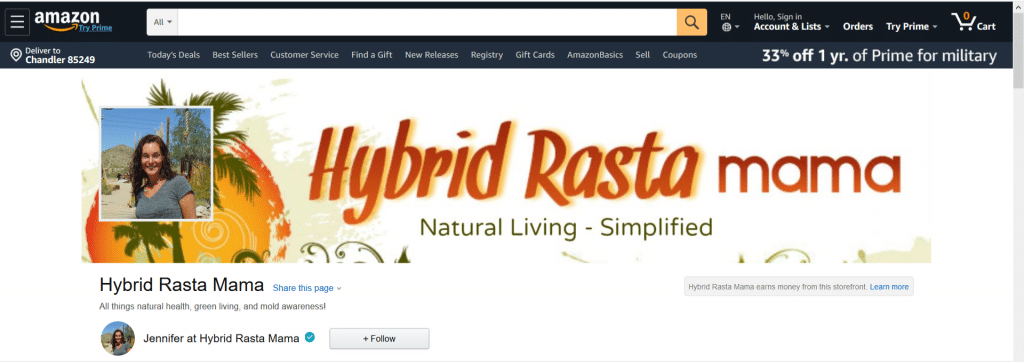
Phillius Thomas says
I didn’t know one could even be allergic to chlorine. I am really glad my firstborn didn’t have an allergy, and I hope my next doesn’t either. It’s good I am finally looking this up it seems.